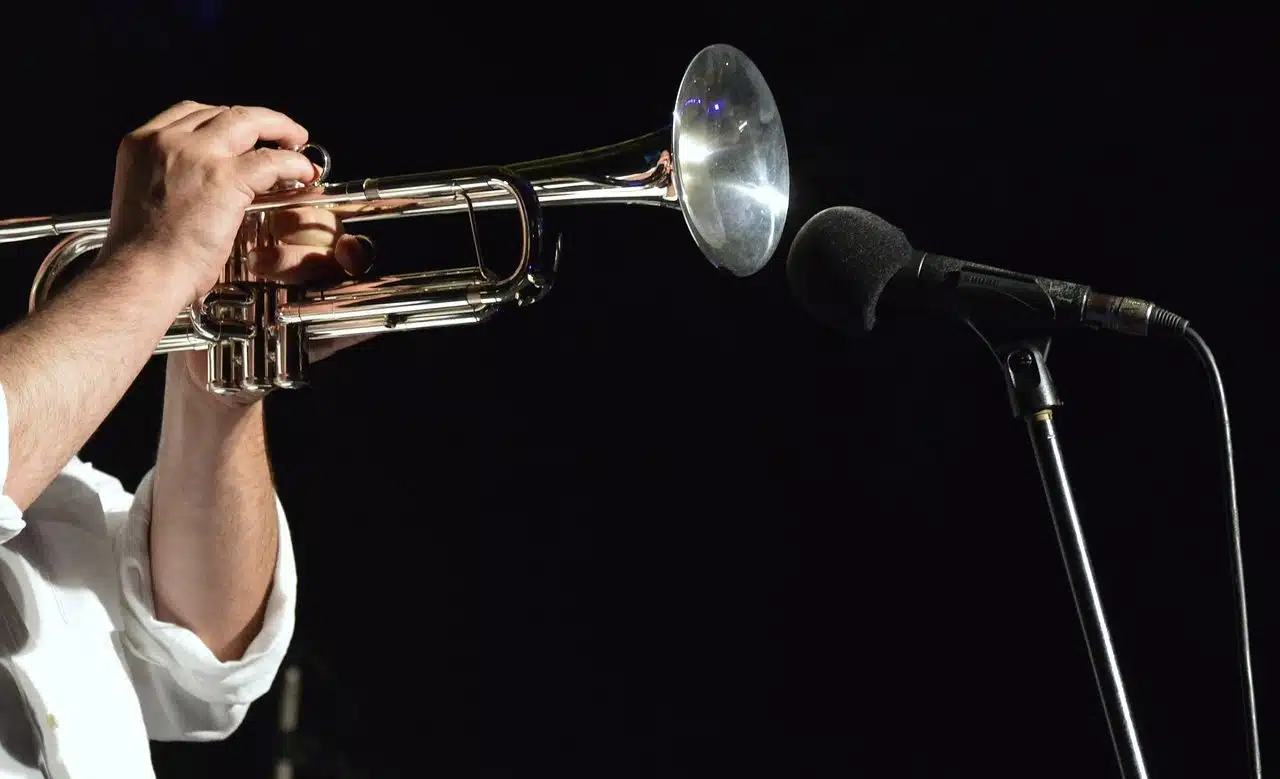
A trumpet is a wind instrument.
A trumpet is a wind instrument that allows music to be made thanks to the passage of air through its interior. Its structure consists of an extensive tube that widens and emits a different sound depending on how it is blown.
For example: "On the next album we will include several songs with trumpet" , "When I was ten years old, my dad gave me a trumpet" , "What would a jazz band be without a good trumpet?" .
The person who plays this instrument is known as a trumpeter or even simply as a trumpet player: "My dream was to be the best trumpet player in Latin America," "The presentation was suspended due to the trumpet's illness."
Trumpet operation
To produce the sounds, the trumpeter must blow into the mouthpiece of the instrument. The air advances through the tube and exits through a sector known as the bell . Through three pistons, the musician can create different tunings.
Each time a piston is depressed, it acts on the trumpet tube in different ways. With respect to tessitura , the basic range of the trumpet is two and a half octaves, spanning from the piano's third F sharp to middle C, although there are exceptions that depend on both the instrument and the skill of the musician.

Louis Armstrong was noted for his talent on the trumpet.
Its historical origin
It is believed that the first trumpets were created with the horns of different animals. These prehistoric instruments were used in ceremonies and also for communication purposes. Over time, trumpets created with reeds and other materials of plant or animal origin began to emerge, until the discovery of bronze .
Although it is possible to find the use of trumpets in different musical genres, for several decades this instrument has usually been associated with jazz . In this sense, several of the most recognized jazz players in history were trumpet players, such as Miles Davis , Dizzy Gillespie and Louis Armstrong .
Rubén Simeó, a trumpet genius
In 1992 , Rubén Simeó was born in the Spanish city of Vigo , a prodigy trumpeter for whom a bright future awaited. His father also dedicated himself to playing the trumpet and was his first teacher: Rubén began studying this difficult instrument at the age of 7 at the Vigo Conservatory . From his first forays, he did nothing but receive praise and collect important awards .
Throughout his short but intense career , Simeó has managed to get Maurice André (a French trumpeter considered by many to be the greatest of recent times) to sponsor him. He was only 14 years old when André discovered him and decided to make an exceptional space in his agenda to make him his successor, publicly declaring that he was a child with all the necessary skills to reach the top in the trumpet domain.
Given his talent for music, concerts and television presentations were not long in coming: there are videos on the Internet that show him from the age of 8 playing in the company of orchestras and dazzling with his technique and expressiveness, in addition to the considerable difference in age between him and the rest of the musicians. It is worth mentioning that natural talent is only part of the equation; Learning to play the trumpet requires great discipline, a lot of dedication and the willingness to sacrifice certain moments of leisure.
Curiously, the first instrument in which Rubén became interested was the cello, which he began studying when he was only 6 years old. However, given his father's profession, the little prodigy borrowed his father's trumpet to play, and thus discovered his new passion. The repertoire that most attracts him is the virtuoso, since it can cause very intense sensations in his audience and in this way connect with them.
